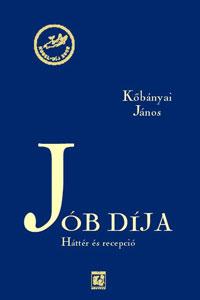Jób díja
The Price of Jób
Background and Receprion
Author(s): János Kőbányai
Subject(s): Jewish studies, Hungarian Literature
Published by: Múlt és Jövő
Keywords: Imre Kertész; Nobel Prize;
Summary/Abstract: Job’s Prize began as an epilogue to The Depths of the Man – an anthology of the writings of Imre Kertész published in the magazine Múlt és Jövő. It is a separate work and a supplement, the two works, separate, but together as one, aim at some kind of stereo effect. The editor of the magazine and compiler of the anthology János Kőbányai sought out the general narrative behind the life-work of the Nobel Prize-winner, what material constitutes the history from which Imre Kertész raised and unfurled his own “Fatelessness”. Four consecutive eras of Hungarian Jewish history form the meta-narrative of this extraordinary achievement and its reception: the rapid but poorly founded Jewish assimilation of the Reform era and the reserved manner of acceptance; then the collapse of this process about a century later, or the Hungarian Holocaust so peculiar; followed by a period of enforced amnesia, that denied Jews any integrated form of identity; finally, contemporary times after the political change, which in the field of everyday politics tried to rewrite the Hungarian narrative, or in Kőbányai’s words: “to remove the actors from the stage”. This is the background to the birth of the work of Kertész and the failure to accept it in Hungary, but also to the generous reception of the novel all over the world, unprecedented in the annals of Hungarian literature since Janus Pannonius. In the second part, the author analyses the startled reception in Hungary of Kertész’s Nobel Prize and the intellectual discourse as it evolved in its wake.
- Print-ISBN-10: 963-917-190-5
- Page Count: 162
- Publication Year: 2003
- Language: Hungarian
- eBook-PDF
- Sample-PDF
- Table of Content
- Introduction

